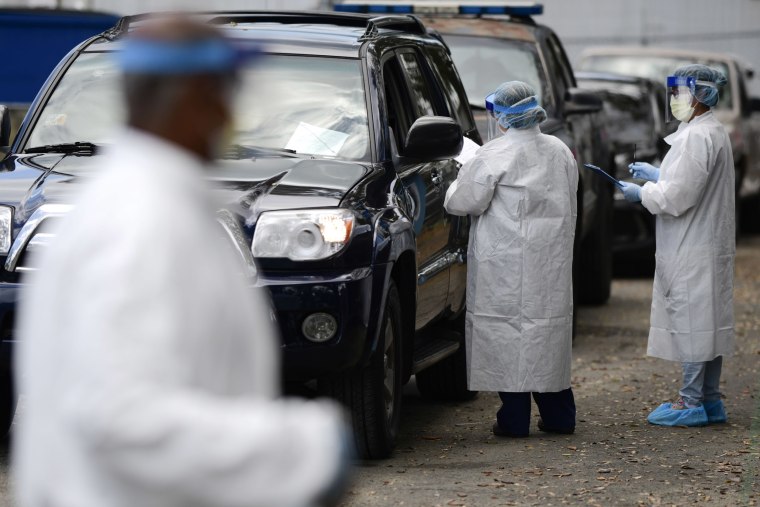The American Civil Liberties Union filed a lawsuit Wednesday challenging the Puerto Rican government over what the group called a pair of “fake news” laws that it says authorities can use to punish reporters covering the coronavirus pandemic.
The suit, brought in federal district court, was filed on behalf of two journalists, Sandra Rodríguez Cotto and Rafelli González-Cotto. Gov. Wanda Vázquez Garced and other officials are named as defendants.
According to court documents, one of the provisions criminalizes raising “a false alarm” over an imminent catastrophe, during a state of emergency, or to “spread rumors” about “non-existing abnormalities.”
The second provision, enacted April 6, makes it a crime to “transmit by any means” false information with the intention of creating confusion, panic or public hysteria, according to the documents. The group says violators could face a maximum of three years in jail and $5,000 fine.
The documents say that the government charged a pastor using one of the provisions after he used the messaging platform WhatsApp to discuss a rumored executive order that would shutter businesses across the island. The government blamed the pastor for a run on grocery stores, the documents say, even though the governor issued the executive order.
The charges against the pastor were later dropped.
In a news release, the ACLU said the laws don’t require the government to show that the person who published the information knew it was false.
“The laws give people far too little guidance on what speech may constitute a crime and government far too much discretion in deciding whom to prosecute,” the group said. “As a result, the laws chill a great deal of reporting on the COVID-19 crisis and other emergencies, because journalists risk prosecution if the government disputes the accuracy of their reporting.”
A spokeswoman for the governor did not immediately respond to a request for comment.
The reporting of one of the journalists the ACLU is representing, Rodríguez Cotto, helped spark massive protests that led to the resignation of former Gov. Ricardo Rosselló. The other journalist, González-Cotto, has reported on the state government’s undercounting of the island’s coronavirus fatality rate.
“The press must be free to do its job, without fear of government reprisal,” the group quoted Rodríguez Cotto saying. “These laws place a significant barrier on the flow of information of public interest, and the debate that must be allowed.”
The ACLU added that more transparency, including regular press briefings about the pandemic and the release of public records, would be a better tool in the government's fight against misinformation.
